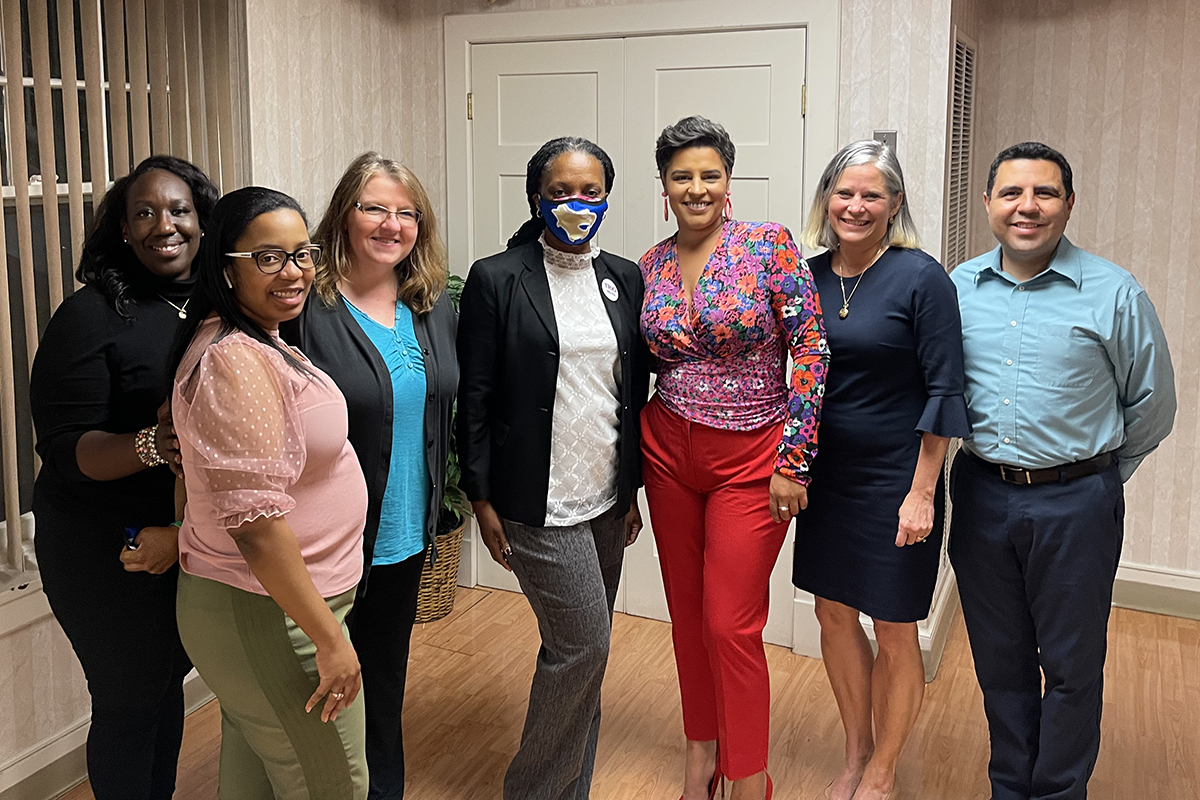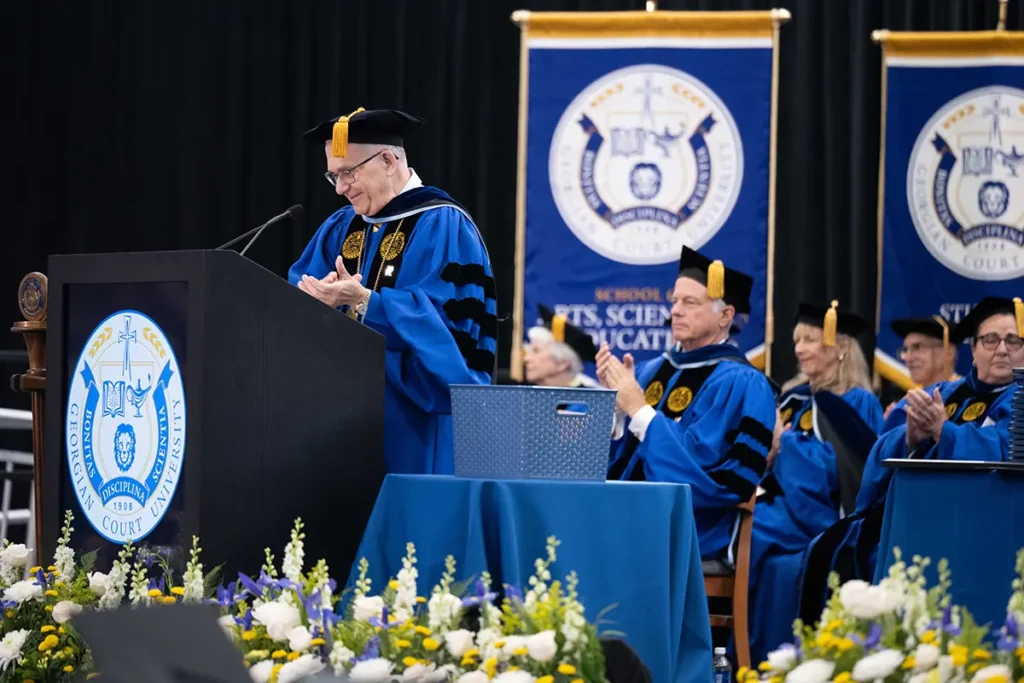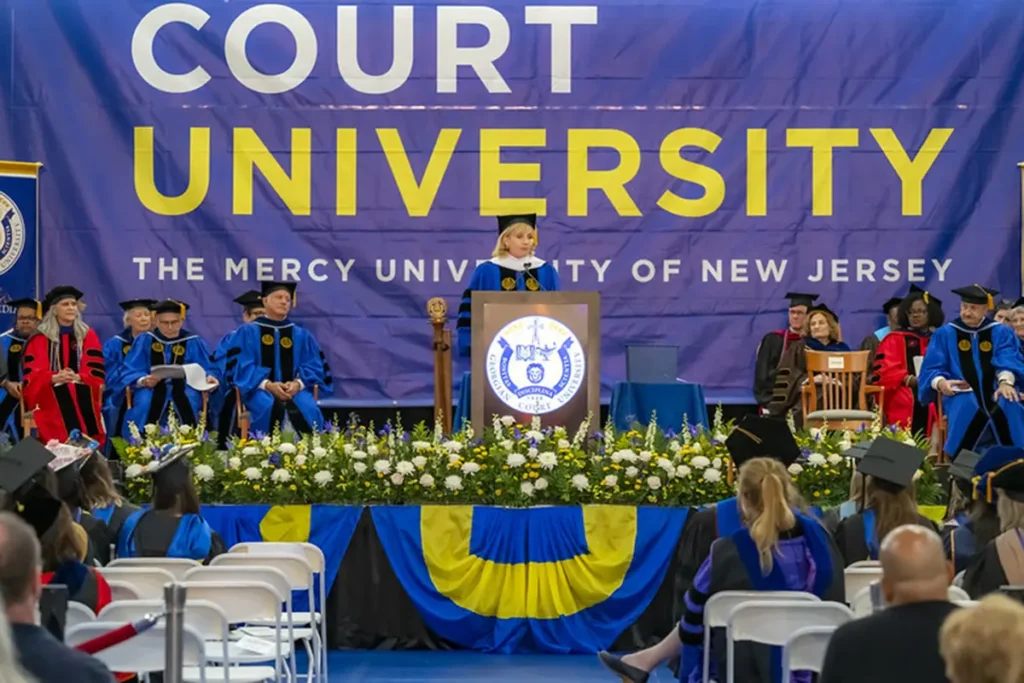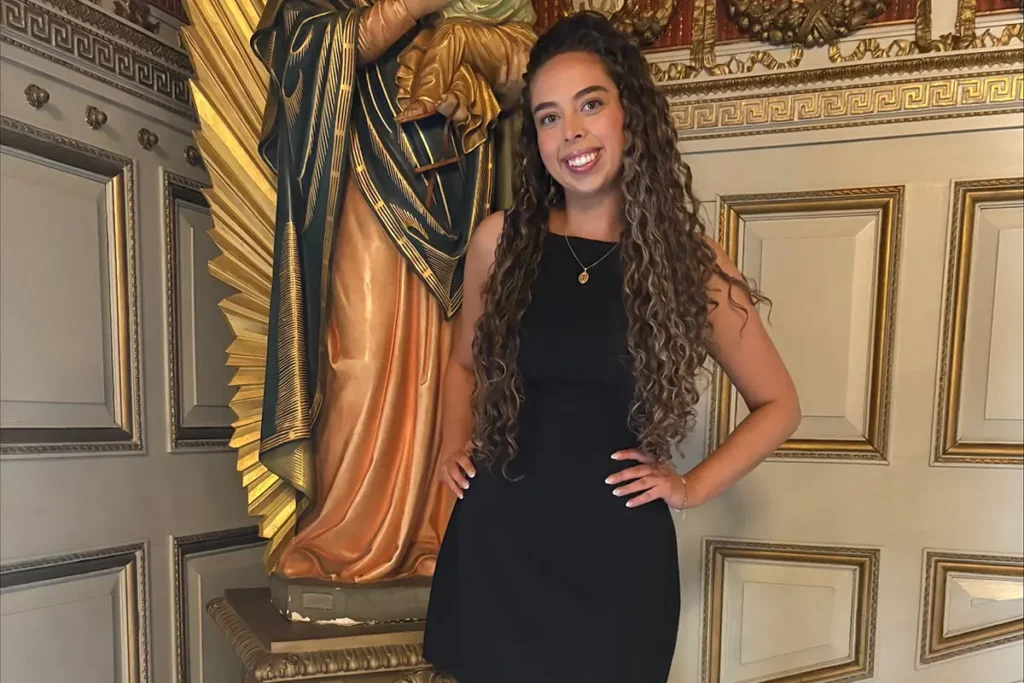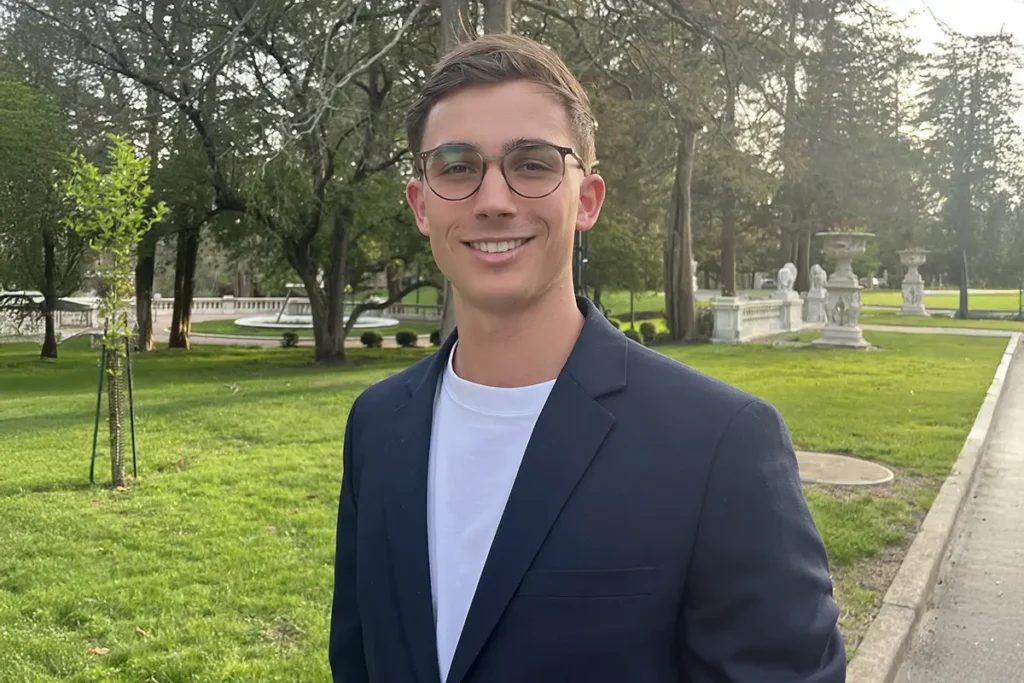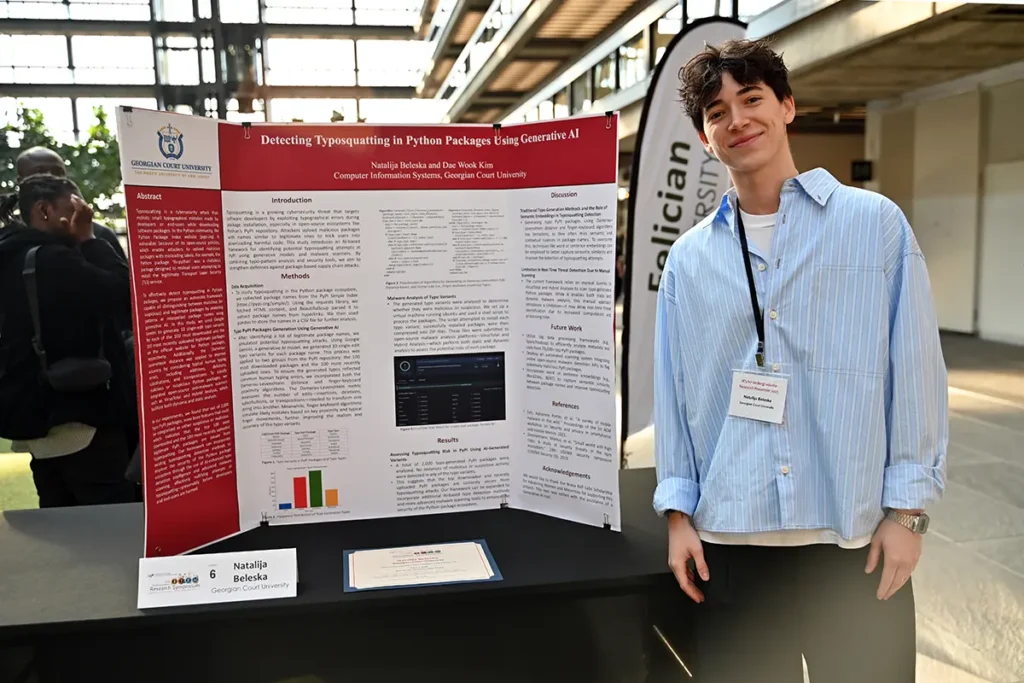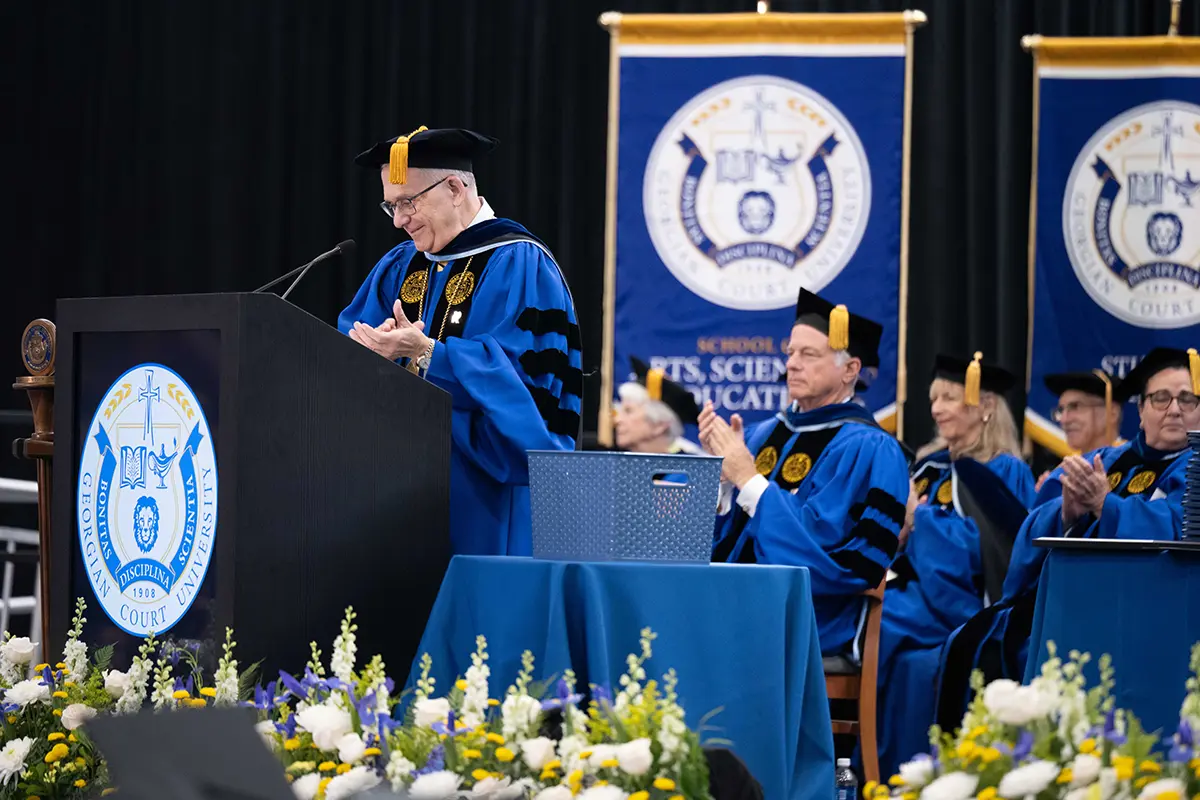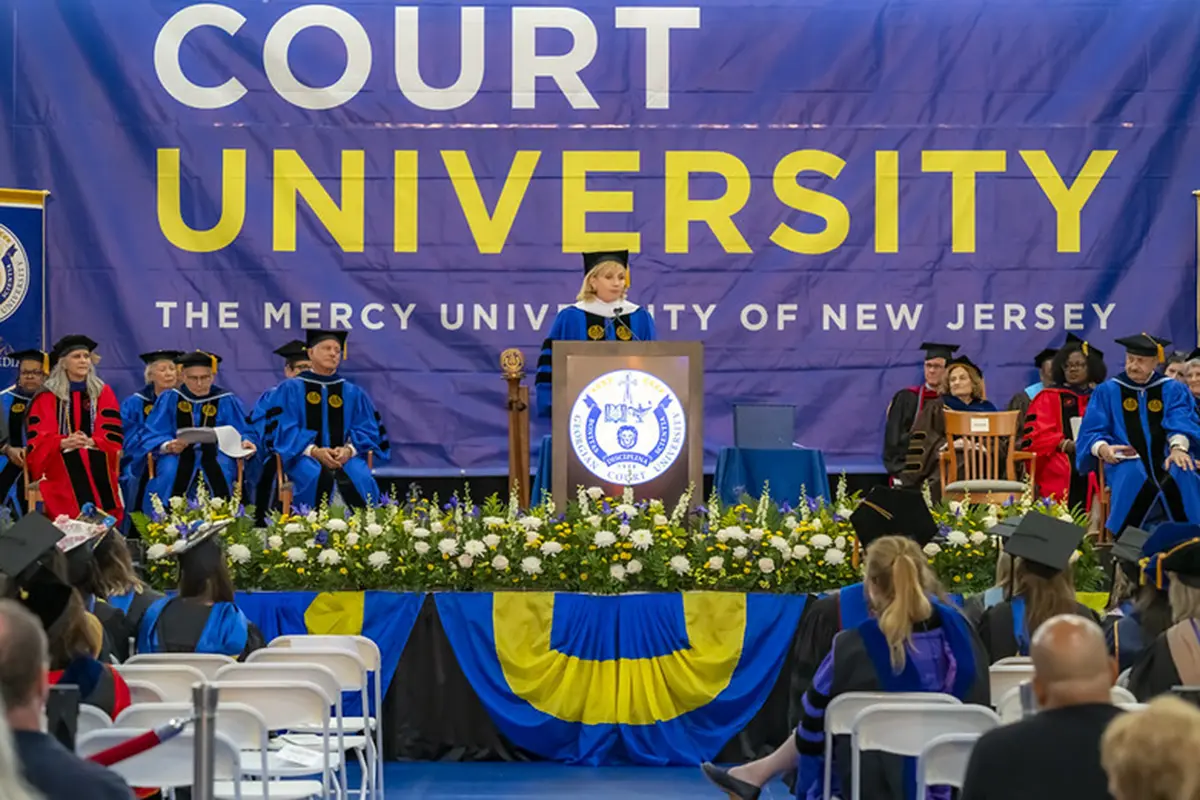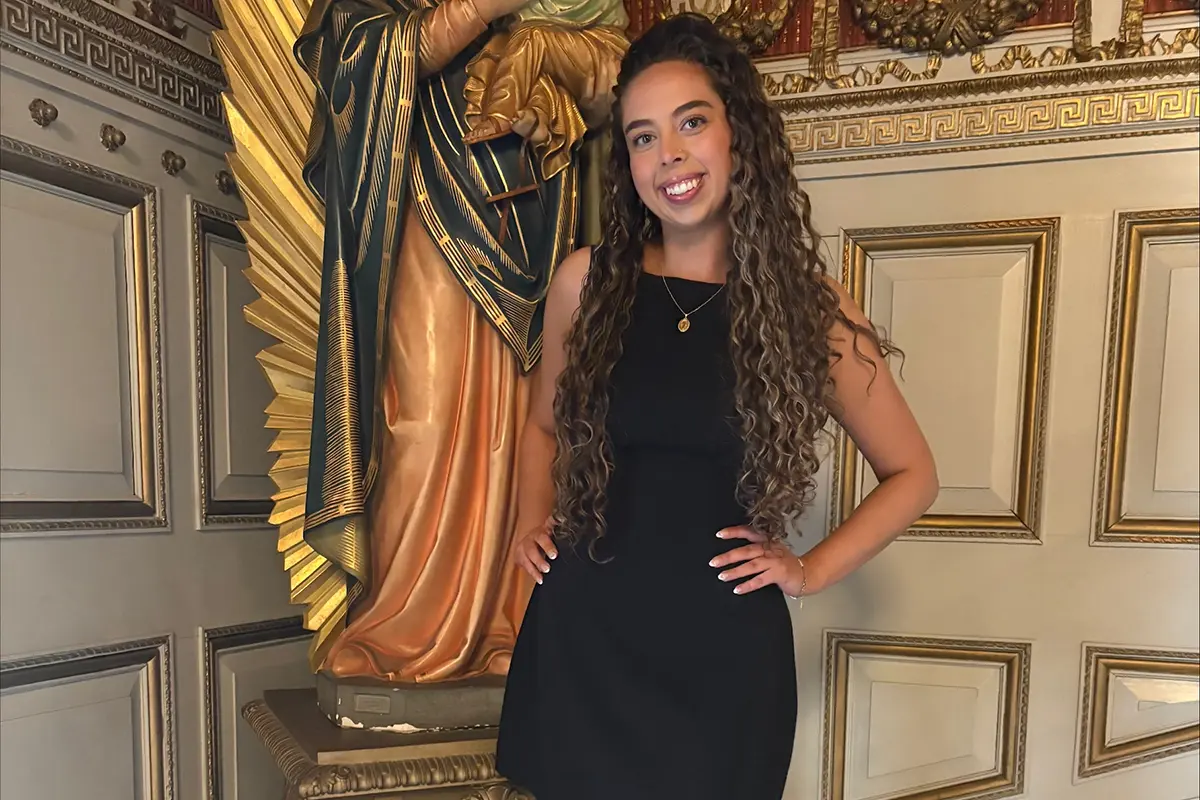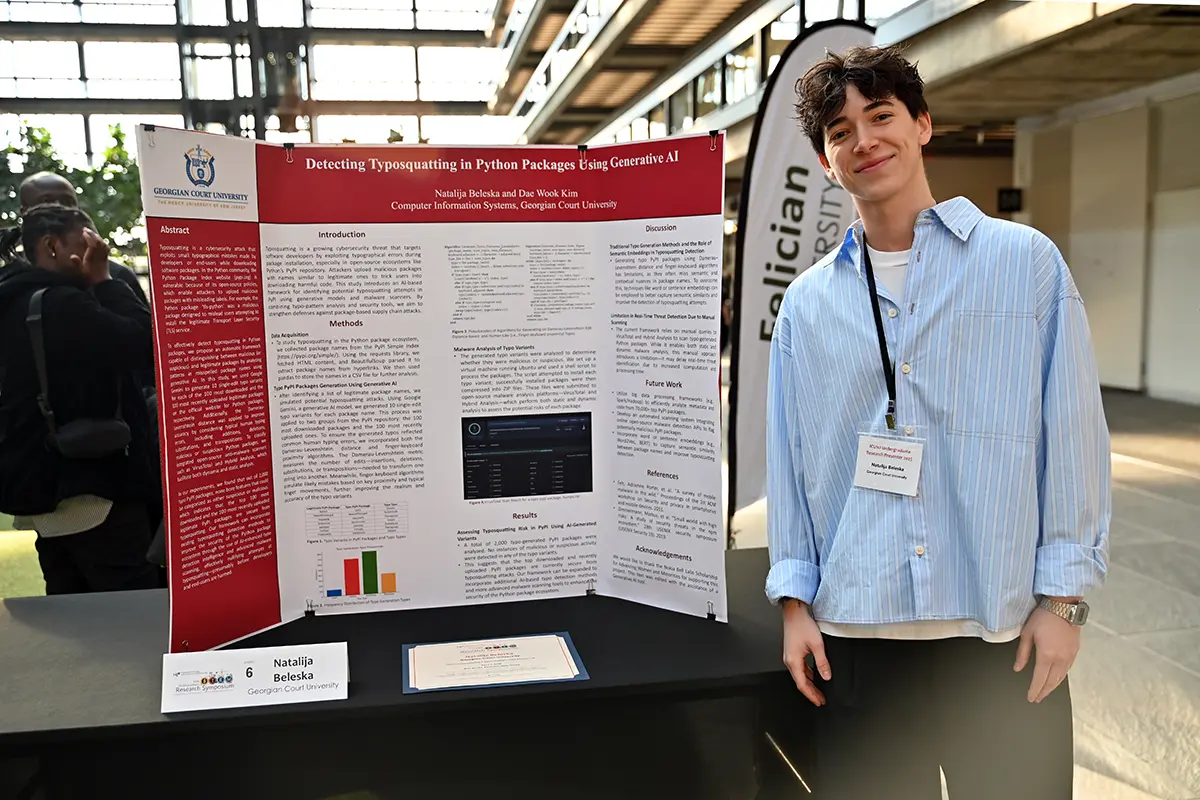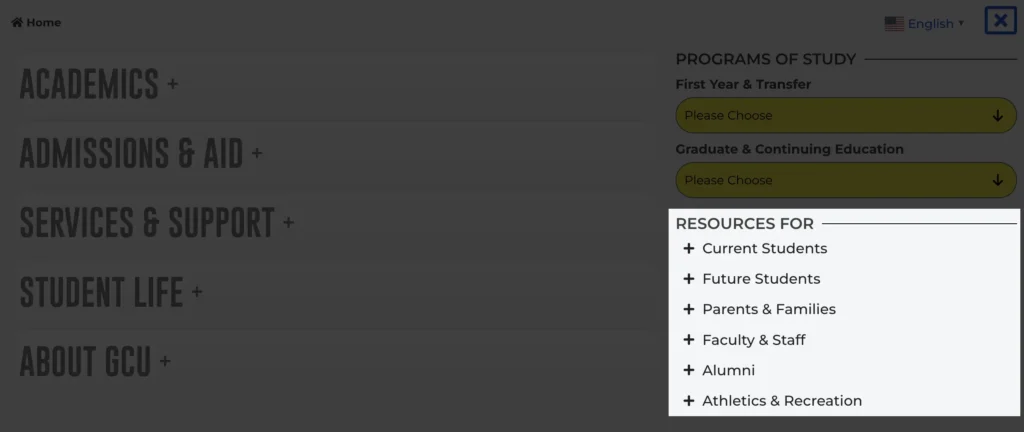Joy Smith, Ed.D., chief diversity officer for student affairs; Jewel Boyd, coordinator for student activities and engagement; Kim Markland, TRIO academic specialist; Danielle Lamb, director of TRIO-Student Support Services; Erika Hernandez, co-founder and CEO, Latina Made Not Maid; Provost Janice Warner, Ph.D.; and Jaime A. Rivera, Ph.D., associate professor of world languages and cultures and director of the Vamos/Avanzando program, at the “Latina Made, Not Maid” presentation on October 6, 2021
Georgian Court University plans to apply results from the 2021 National Survey of Student Engagement (NSSE) to further cultivate a positive campus environment where everyone feels they belong and has ample opportunities for diversity in the classroom and student life.
Every two years, Georgian Court encourages students to complete the NSSE, a survey of first-year and senior students. The 2021 results reflected the pandemic-related challenges of college life, but respondents expressed some positives as well. “Students said they had fewer interactions with faculty and staff, but at the same time became more independent learners and completed more writing assignments, with interactions about on par with other New Jersey schools,” said Janet Thiel, OSF, Ph.D., Georgian Court’s assistant vice president for university assessment.
Other high-level findings include:
- GCU first-year students gave higher ratings than first-year students from 11 peer colleges on instructor teaching style and opportunities to engage in discussions with people from different religious backgrounds.
- GCU seniors, compared to peers, gave more favorable evaluations of their service learning or senior capstone experiences, as well as the university’s emphasis on attending important social issue-centered events.
A Closer Look at Inclusion and Diversity
In addition to the main survey, the GCU Provost’s Council asked students to participate in a second questionnaire, NSSE’s Topical Module on Inclusiveness and Engagement with Cultural Diversity. Across higher education, diversity, equity, and inclusion (DEI) is an area of significant focus; recently, a national Art & Science Group poll found DEI initiatives have considerable appeal to high school seniors across racial and ethnic backgrounds.
DEI, which closely aligns with Georgian Court’s Mercy mission and values, is a focus of special interest and investment for the university.
“We’re at the beginning of the diversity office’s development, so it made sense to capture the campus climate in terms of diversity and inclusion from students’ perspectives,” said Sister Janet. In 2019, the university created a Council for Diversity, Equity, and Inclusion that includes students, alumni, faculty, and staff. This year, GCU hired two chief diversity officers—Ariana “Ria” DasGupta, Ed.D., for academic affairs and community outreach, and Joy L. Smith, Ed.D., for institutional and student affairs.
The NSSE Topical Module asked students to evaluate how well Georgian Court performs in several DEI-related areas, such as providing a supportive environment for diverse communities, diversity in the classroom experience, and diversity-related campus activities. Seniors gave the university significantly higher ratings on 18 DEI-related items than their peers—a strong reflection of DEI at GCU, says Sister Janet. Some seniors noted how GCU encourages students to develop an appreciation of diversity and also that people of different sexual orientations are accepted socially on campus.
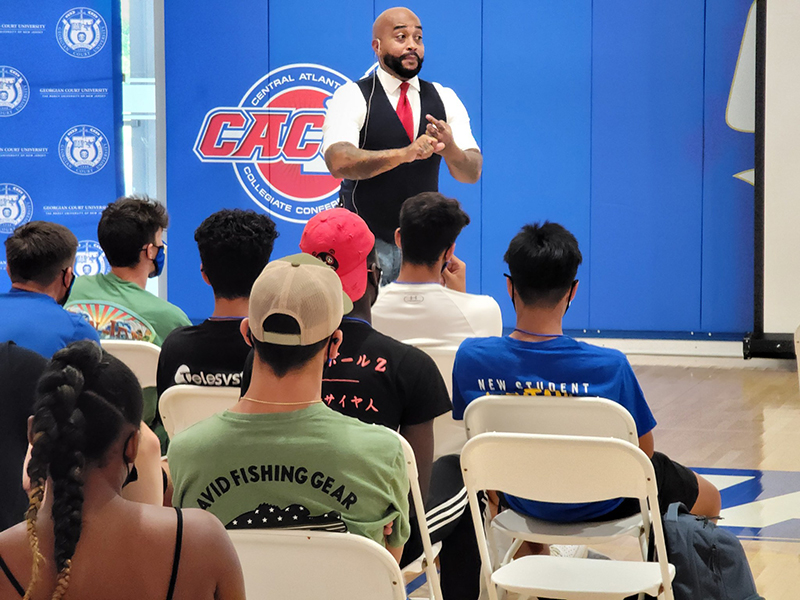
“As the data from seniors demonstrate, our faculty are clearly cultivating spaces in which students are able to develop sensibilities with regards to diversity, equity, and inclusion that will follow them into their careers and ongoing relational spaces,” said Dr. DasGupta. “It also reveals clear opportunities to develop our campus-wide programming around DEI. If faculty, staff, and administrators are actively engaged in building equity awareness, students will be further encouraged and inspired to do the same. This engagement must continue to reach beyond GCU, into the community, so that all GCU members can experience equity-mindedness in context.”
Applying What We’ve Learned
Without application, results from surveys such as NSSE are merely data sets. Georgian Court administrators, faculty, and staff carefully examine and discuss survey findings, looking for practical ways to continue building on the university’s strengths and developing in areas that can be improved. For example, says Sister Janet, in past years, NSSE surveys reflected potential for growth in quantitative reasoning. Faculty responded by being more explicit in their lectures when using quantitative data and explaining how it related to students’ coursework. Since 2015, GCU first-year students and seniors have given increasingly higher ratings in the NSSE survey on how well the university presents quantitative reasoning.
GCU has been assessing 2021 NSSE results in all categories and creating plans to implement the findings, including in DEI.
“The data from the NSSE DEI module confirms that equity and inclusion is embedded in our practices on campus—specifically in our classrooms,” said Dr. Smith. “Our goal is to further replicate this across the institution through programming and community engagement. We want to provide greater opportunities for students to step outside their comfort zones and authentically learn more about the experiences of those who have been ’othered’ in our society because of their racial, gender, religious, (dis)ability, or any other identity. We are heading in the right direction, and we are excited about the trajectory.”
Story contributed by freelance writer Sheila Noonan.

